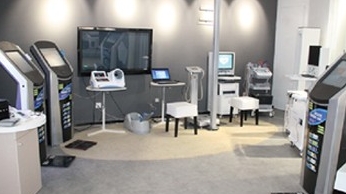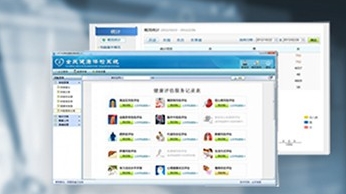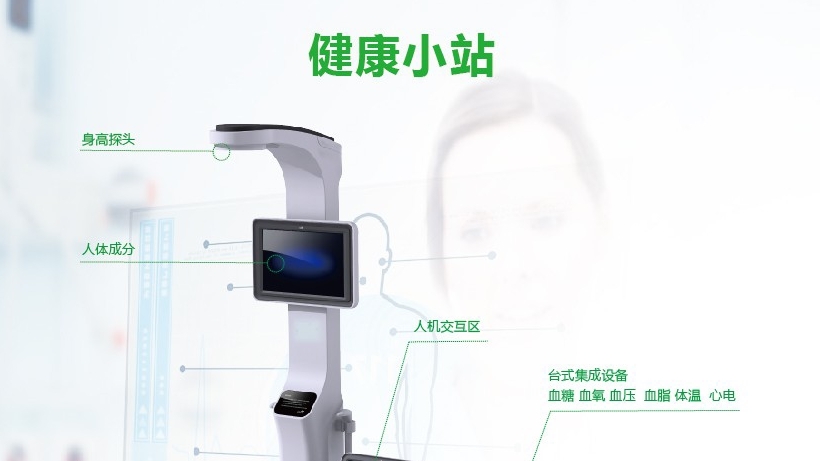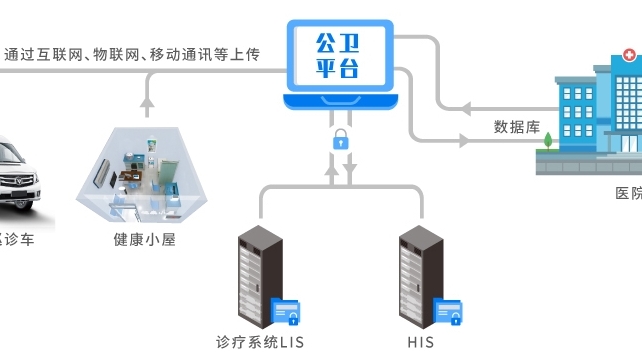 濟南易享醫(yī)療科技有限公司
濟南易享醫(yī)療科技有限公司
服務熱線:185 5315 8035
聯(lián)系地址:濟南市高新區(qū)新濼大街1666號齊盛廣場2號樓15樓
數(shù)據(jù)賦能康復:隨訪一體機的臨床應用與價值突破
一、術后康復管理的傳統(tǒng)困境與技術突破
1、 Traditional Challenges and Technological Breakthroughs in Postoperative Rehabilitation Management
外科手術技術的進步使復雜術式成功率顯著提升,但術后康復階段的管理效能仍面臨多重挑戰(zhàn)。傳統(tǒng)隨訪模式依賴門診復查與電話溝通,存在數(shù)據(jù)采集碎片化、干預滯后性強、患者依從性低等問題。以骨科關節(jié)置換術后為例,約 37% 的患者因康復指導不及時出現(xiàn)關節(jié)粘連,22% 的慢性病患者在出院后 1 個月內發(fā)生非計劃再入院。隨訪一體機的出現(xiàn),通過整合物聯(lián)網(wǎng)傳感技術、遠程數(shù)據(jù)傳輸與智能分析系統(tǒng),構建起覆蓋術后全周期的動態(tài)管理平臺,實現(xiàn)了從經驗驅動到數(shù)據(jù)驅動的模式轉變。
The advancement of surgical techniques has significantly improved the success rate of complex surgical procedures, but the management efficiency of postoperative rehabilitation still faces multiple challenges. The traditional follow-up model relies on outpatient follow-up and telephone communication, which has problems such as fragmented data collection, strong intervention lag, and low patient compliance. Taking orthopedic joint replacement surgery as an example, about 37% of patients experience joint adhesions due to delayed rehabilitation guidance, and 22% of chronic disease patients experience unplanned readmission within one month after discharge. The emergence of follow-up all-in-one machines has achieved a shift from experience driven to data-driven mode by integrating IoT sensing technology, remote data transmission, and intelligent analysis systems to build a dynamic management platform covering the entire postoperative cycle.
二、多模態(tài)數(shù)據(jù)采集在精準評估中的核心應用
2、 The core application of multimodal data acquisition in precise evaluation
術后康復的科學評估依賴于連續(xù)、多維的生理指標監(jiān)測。隨訪一體機搭載的生物傳感器可實時采集心率變異性、血氧飽和度、關節(jié)活動度等 12 項核心數(shù)據(jù),通過邊緣計算技術實現(xiàn)異常值自動預警。在心血管術后患者管理中,系統(tǒng)通過分析步態(tài)周期參數(shù)與血壓波動的關聯(lián)性,提前 48 小時識別出心肌缺血復發(fā)的潛在風險,使預警準確率提升至 89%。對于腫瘤術后患者,體成分監(jiān)測模塊能精確追蹤肌肉量與脂肪含量的動態(tài)變化,為營養(yǎng)干預方案提供量化依據(jù),相較傳統(tǒng)體測方式數(shù)據(jù)誤差縮小 60%。這種全維度的數(shù)據(jù)采集模式,打破了時間與空間的監(jiān)測壁壘,為個體化康復方案的制定奠定了堅實基礎。
The scientific evaluation of postoperative rehabilitation relies on continuous and multidimensional monitoring of physiological indicators. The biosensor on the follow-up all-in-one machine can collect 12 core data in real time, such as heart rate variability, blood oxygen saturation, and joint mobility, and realize automatic early warning of abnormal values through edge computing technology. In the management of postoperative cardiovascular patients, the system identifies the potential risk of myocardial ischemia recurrence 48 hours in advance by analyzing the correlation between gait cycle parameters and blood pressure fluctuations, thereby improving the accuracy of early warning to 89%. For postoperative tumor patients, the body composition monitoring module can accurately track the dynamic changes in muscle mass and fat content, providing quantitative basis for nutritional intervention plans, and reducing data errors by 60% compared to traditional body measurement methods. This comprehensive data collection mode breaks down the monitoring barriers of time and space, laying a solid foundation for the development of individualized rehabilitation plans.

三、智能交互系統(tǒng)對康復依從性的提升路徑
3、 The path of improving rehabilitation compliance through intelligent interactive systems
患者依從性不足是術后康復效果的主要制約因素,尤其是需要長期功能鍛煉的慢性病群體。隨訪一體機內置的交互式指導系統(tǒng),通過動作捕捉攝像頭與 AI 算法,實時校準康復訓練姿勢,如膝關節(jié)置換術后的步態(tài)訓練,系統(tǒng)可識別出 13 種錯誤動作模式并生成語音糾正指令。心理干預模塊則通過正念訓練引導、康復進度可視化等功能,將患者的鍛煉依從性從 41% 提升至 76%。在呼吸科術后管理中,系統(tǒng)結合肺功能檢測數(shù)據(jù),自動生成階梯式呼吸訓練計劃,配合視頻通話功能實現(xiàn)康復治療師的遠程實時指導,使慢阻肺病患者的 6 分鐘步行距離提升速率加快 35%。這種融合技術與人文關懷的交互模式,重塑了醫(yī)患協(xié)作的時空形態(tài)。
Insufficient patient compliance is the main limiting factor for postoperative rehabilitation outcomes, especially for chronic disease populations that require long-term functional exercise. The interactive guidance system built into the follow-up all-in-one machine uses motion capture cameras and AI algorithms to calibrate rehabilitation training postures in real time, such as gait training after knee joint replacement surgery. The system can recognize 13 erroneous motion patterns and generate voice correction instructions. The psychological intervention module, through mindfulness training guidance and visualization of rehabilitation progress, has increased patients' exercise compliance from 41% to 76%. In postoperative management of respiratory diseases, the system combines lung function testing data to automatically generate a tiered respiratory training plan, which, combined with video call function, enables remote real-time guidance from rehabilitation therapists, accelerating the 6-minute walking distance improvement rate of patients with chronic obstructive pulmonary disease by 35%. This integration of technology and humanistic care has reshaped the temporal and spatial form of doctor-patient collaboration.
四、跨學科協(xié)作場景下的協(xié)同管理價值
4、 The value of collaborative management in interdisciplinary collaboration scenarios
現(xiàn)代術后康復涉及外科、康復醫(yī)學、營養(yǎng)學等多學科協(xié)作,隨訪一體機成為打破信息孤島的關鍵樞紐。系統(tǒng)通過標準化數(shù)據(jù)接口,實現(xiàn)電子病歷、檢驗報告、康復記錄的實時共享,使多學科團隊能在統(tǒng)一平臺上進行病例討論。在神經外科術后認知康復中,神經內科醫(yī)師可通過系統(tǒng)獲取患者的認知功能評估數(shù)據(jù)(包括蒙特利爾認知量表得分、反應時測試結果),結合康復科制定的作業(yè)訓練計劃,動態(tài)調整神經保護藥物劑量,使認知功能恢復周期縮短 22%。對于接受器官移植的患者,系統(tǒng)自動比對免疫抑制劑血藥濃度與腎功能指標,通過智能算法生成用藥提醒,將排斥反應發(fā)生率從 18% 降至 9%。這種跨領域的數(shù)據(jù)流轉與決策支持,構建了立體化的康復管理生態(tài)。
Modern postoperative rehabilitation involves multidisciplinary collaboration such as surgery, rehabilitation medicine, and nutrition, and the integrated follow-up machine has become a key hub for breaking information silos. The system achieves real-time sharing of electronic medical records, laboratory reports, and rehabilitation records through standardized data interfaces, enabling multidisciplinary teams to discuss cases on a unified platform. In postoperative cognitive rehabilitation in neurosurgery, neurologists can obtain patients' cognitive function assessment data (including Montreal Cognitive Scale scores and reaction time test results) through the system, and dynamically adjust the dosage of neuroprotective drugs based on the rehabilitation training plan developed by the rehabilitation department, shortening the cognitive function recovery cycle by 22%. For patients undergoing organ transplantation, the system automatically compares the blood concentration of immunosuppressants with renal function indicators, generates medication reminders through intelligent algorithms, and reduces the incidence of rejection reactions from 18% to 9%. This cross disciplinary data flow and decision support have built a three-dimensional rehabilitation management ecosystem.
本文由隨訪一體機友情奉獻.更多有關的知識請點擊:http://www.s2580.cn我們將會對您提出的疑問進行詳細的解答,歡迎您登錄網(wǎng)站留言.
This article is a friendly contribution from the Home Signature Workstation For more information, please click: http://www.s2580.cn We will provide detailed answers to your questions. You are welcome to log in to our website and leave a message
相關文章 / Recommended news
- 數(shù)據(jù)賦能康復:隨訪一體機的臨床應用與價值突破
- 隨訪一體機:康復路上的 “智能教練”
- 公衛(wèi)隨訪包:突發(fā)公共衛(wèi)生事件中的 “移動作戰(zhàn)百寶箱”
- 慢病隨訪包檢測數(shù)據(jù)準確性如何保障呢?
- 公衛(wèi)隨訪包:能裝滿重點人群的健康期待嗎?
- 健康一體機檢測會不會耽誤太多時間?
- 慢病隨訪包:揣在兜里的健康 “小管家” 有何神通?
- 探秘醫(yī)院體檢管理系統(tǒng):解鎖體檢套餐 “自由搭配” 的奧秘
- 解鎖健康守護神器:家簽隨訪包的專屬 “用戶畫像”
- 公衛(wèi)隨訪包:公共衛(wèi)生服務中的創(chuàng)新實踐與核心價值




